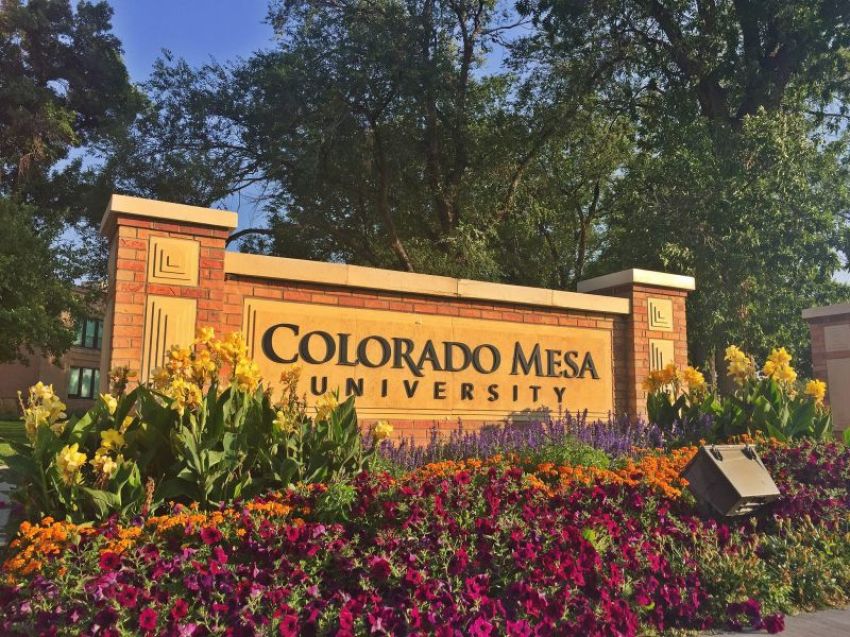University Admits 'Mistake' Banning Jesus, John 16:33 in Student's Graduation Speech

Colorado Mesa University has rescinded its demand that a Christian student scrub references to Jesus and a Bible verse from her speech during a pinning ceremony for the school's nursing program, one of the nation's top conservative religious freedom law group has announced.
The Alliance Defending Freedom issued a statement Thursday saying that the public school will no longer require Karissa Erickson to remove religious references in her speech after telling the graduating student that she must do so in accordance with university policy.
The decision comes after ADF lawyer Travis Barham sent university leaders a letter on May 4 stating that the university's understanding of the Establishment Clause of the First Amendment is wrong.
"America's Founding Fathers regularly opened public ceremonies with prayer, and federal appeals courts have consistently ruled that universities can do the same at their graduation ceremonies," Barham said in a statement. "We applaud the university for quickly recognizing that the First Amendment protects a graduating student's right to mention her faith in her own speech and has never required universities to purge ceremonies of all things religious."
School officials hadn't initially given Erickson or her fellow ceremony speaker specific guidelines except that the two had to finish their speeches in 10 minutes combined, Barham's letter to the school explained.
Erickson planned to include a story in her remarks about overcoming adversity that would end with the line "God always has a purpose."
ADF reports that Erickson was to conclude by saying: "I find comfort in Jesus' words, and pass them on to you. John 16:33. 'These things I have spoken to you, that in Me you may have peace. In the world you have tribulation, but take courage, I have overcome the world.'"
School officials reviewed the student's draft on April 18. The letter indicates that they informed Erickson two days later that she would have to remove the last section about finding comfort in Jesus' words.
Erickson was allegedly told by an administrator that "We just have to be professional and careful in a public ceremony as some people don't appreciate those references."
On May 2, Erickson was told that a few years prior, there was negative uproar in response to a ministry distributing Bibles on campus. ADF reports that because of the negativity the school received, it enacted a policy of not allowing public remarks about any specific religion.
The ADF letter explains that the university's legal concern is based in the concept of "separation of church and state," which Barham points out does not appear anywhere in the United States Constitution or in any of the debates of the Constitutional Convention.
"The First Amendment merely states: "Congress shall make no law respecting an establishment of religion, or prohibiting the free exercise thereof," Barham wrote.
Barham argued that the Establishment Clause, which is often used by national secular legal groups to pressure local governments and schools on the principle of "separation of church and state," only requires the state to be neutral to believers and non-believers and not became an adversary to either.
"Accordingly, both federal appellate courts that have considered graduation prayers at colleges and universities ruled that those prayers comply with the First Amendment," Barham explained, adding the fact that the two cases dealt with the issue of clergy-led prayer at university events.
ADF accused the school of engaging in "viewpoint discrimination" and stated that even though the school was trying to avoid violating the Establishment Clause, it was actually violating the clause by trying to censor Erickson's speech.
"Today's university students will be tomorrow's voters and civic leaders," ADF Senior Counsel Tyson Langhofer, the director of the ADF Center for Academic Freedom, said in a statement. "That's why it's so important that public colleges and universities exemplify the First Amendment values they are supposed to be teaching to students. Colorado Mesa University has shown it wants to do that by taking quick corrective action in agreeing to let students speak without unconstitutional censorship."
Dana Nunn, a CMU spokeswoman, told the Grand Junction Daily Sentinel that the faculty were "trying to do the right thing, but made a mistake."
"It was a well-intentioned misunderstanding of what was appropriate," Nunn said. "I think it's fair to say that a lot of people have their own interpretations of the separation of church and state, and the faculty member that initially asked for the change was just trying to do the right thing, she was just not correct legally."
ADF's success at CMU comes after it forced officials at Mohave Community College in Arizona to retract a ban on an opening and closing prayer at its nursing ceremony in 2010.
There have been many cases in the past several years where public schools have banned prayer at graduation ceremonies.
Last year, an Indiana school district banned prayers at a school graduation after receiving pressure from one of the nation's leading secular groups Freedom From Religion Foundation.



























